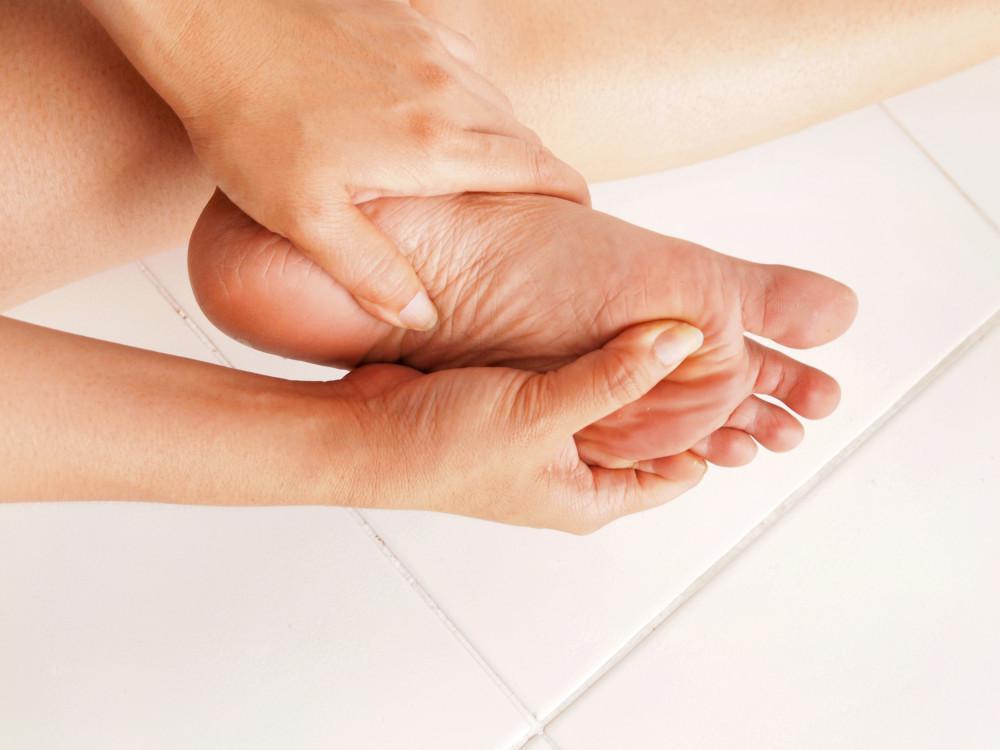
Without a doubt, heel pain can be one of the worst pests to experience while performing daily living activities. According to the American Academy of Orthopaedic Surgeons, heel pain problems such as plantar fasciitis affects about 2 million Americans each year. The good news is that glucosamine for plantar fasciitis can help alleviate this pain.
Before we discuss how glucosamine for plantar fasciitis is useful, let’s talk about this condition.
Plantar fasciitis causes extreme discomfort and pain and is commonly seen amongst runners, dancers, and athletes. Individuals who are obese or overweight also have a higher risk of developing plantar fasciitis since their weight can cause an inflammatory response. However, people of all ages can potentially develop this condition.
Plantar fasciitis is caused by the degenerative irritation of the plantar fascia ligament in the foot. This ligament is a thick band of tissues connecting your heel bone and your toes responsible for supporting the arch of your foot.
Pain and discomfort caused by plantar fasciitis can significantly interfere with walking, jumping, or running activities.
Glucosamine is a pure compound that is chemically labeled as an amino sugar.
It serves as a constructing block for a wide range of purposeful molecules within the body. However, its primary responsibility is producing critical components in the connective tissue to create and sustain cartilage inside the joints.
Glucosamine is a molecule that develops naturally within human and animal tissues. In humans, it is often used as a dietary complement to help with joint issues.
Glucosamine can also be present in other non-human tissues such as shellfish, animal bones, and fungi. Many glucosamine supplements are constructed from these pure sources.
The typical dose of glucosamine is 1,500 mg per day, recommended to be taken with meals.
There are different types of glucosamine, such as glucosamine sulfate, glucosamine hydrochloride, and N-acetyl glucosamine. However, glucosamine supplements usually contain glucosamine sulfate and glucosamine hydrochloride.
You can also purchase glucosamine sulfate combined with chondroitin sulfate since most scientific data indicates a greater efficacy when consumed together.
This supplement has no severe side effects associated with its consumption.
Glucosamine is one of the best natural remedies that can help aid plantar fasciitis. This natural supplement helps repair damaged cartilage while improving the health of tissues and joints.
For the past 40 years, glucosamine has been widely used as a nutritional supplement to treat joint diseases such as osteoarthritis. This supplement is mostly used to treat symptoms of bone and joint disorders and other inflammatory conditions.
Although it is not entirely clear how glucosamine can treat disease processes, some research indicates that it effectively reduces inflammation. Not to mention, when combined with chondroitin supplements, the effectiveness and results can increase.
In a clinical study, glucosamine demonstrated a significant anti-inflammatory effect when applied to bone-forming cells.
A lot of the research available has tested on participants who take chondroitin along with glucosamine. These supplements carry similar compounds that contain anti-inflammatory properties.
In both in vitro studies and animal models, they have proven to maintain cartilage structure by potentially slowing cartilage deterioration in the joints and reducing pain in the process.
This study also linked over 200 individuals using glucosamine supplements to a 28% and 24% reduction in two inflammatory biomarkers: CRP and PGE. This same study also discovered that individuals taking chondroitin showed a 36% reduction of these inflammatory biomarkers.
It can be challenging to come across dietary supplements containing glucosamine since these supplements often contain additional ingredients. These frequently used ingredients are chondroitin sulfate, methylsulfonylmethane (MSM), or shark cartilage.
Some people agree that combining these supplements are more effective than taking glucosamine sulfate by itself. Thus far, no study has been found that proves that combining additional ingredients with glucosamine will deliver better results.
Many scientists still doubt the effectiveness of glucosamine as a treatment for plantar fasciitis. Also, many studies have not discovered significant improvements while taking these supplements.
While glucosamine may not cure symptoms associated with plantar fasciitis, it remains a great alternative compared to receiving no treatment at all.*
We recommend taking PodiVite, which contains Glucosamine and 18 additional pharmaceutical-grade vitamins, minerals, herbs, and supplements. This formulation can help strengthen ligaments and provide relief for those suffering from chronic foot and ankle pain and discomfort, making this high potency nutraceutical product ideal for treating plantar fasciitis.*
No matter which supplements you decide to incorporate into your daily regimen, we hope you found this article helpful and informative.
*These statements have not been evaluated by the Food and Drug Administration. These products are not intended to diagnose, treat, cure or prevent any disease.